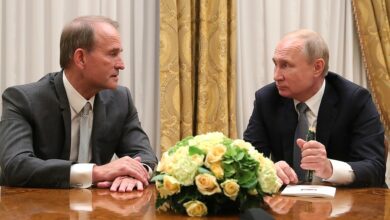Virgin Media O2’s Purchase of a Broadband Firm Linked to Russian Oligarchs
Virgin Media O2 (VM02), a renowned British broadband institution, is poised to acquire Upp, a regional broadband firm provider in Eastern England, following government intervention prompted by national security concerns. This acquisition is part of a larger telecom merger between Liberty Global, a US-based company, and Spain’s Telefonica. In this comprehensive analysis, we will delve into the details and implications of VM02’s acquisition of Upp, shedding light on the acquisition deal, Nexfibre’s commitment, government intervention, LetterOne’s response, Nexfibre’s expansion plans, and broader industry trends.
Acquisition of Deal Virgin Media O2
VM02’s acquisition of Upp is structured as an all-cash transaction, with the exact amount remaining undisclosed but rumoured to be less than £100 million. This deal also incorporates Nexfibre, a collaborative venture involving Liberty Global, Telefonica, and InfraVia Capital, as the new owner of Upp. The merger signifies a strategic move by VM02 to strengthen its position in the broadband firm market and extend its reach into Eastern England.

Nexfibre’s Commitment
Nexfibre, under the umbrella of Liberty Global and Telefonica, has made substantial commitments to the UK broadband landscape. They have pledged an impressive £4.5 billion investment to deploy full-fibre broadband to at least five million premises by 2026. With the acquisition of Upp, Nexfibre has further demonstrated its dedication by allocating £350 million to reach half a million homes in Eastern England with full-fibre broadband by the same target year. This level of investment is poised to significantly enhance the digital infrastructure in the region, fostering economic growth and technological advancement.
Government’s Intervention
The UK government’s decision to intervene in the acquisition of Upp by VM02 was primarily motivated by national security concerns. Upp had previously been owned by the finance group LetterOne (L1), which had ambitious plans to create a £1 billion broadband network. However, LetterOne’s founders included Russian oligarchs Mikhail Fridman and Petr Aven, which raised red flags in the context of international geopolitics. While LetterOne took steps to distance itself from its oligarch backers following Russia’s actions in Ukraine, Fridman and Aven faced sanctions in certain countries. To address these concerns, the UK government invoked the National Security and Investment Act, mandating the sale of Upp.
LetterOne’s Response
In response to the government’s decision to divest Upp, LetterOne was required to conduct a comprehensive security audit of the Upp business and its broadband infrastructure. This audit aimed to ensure that the transfer of ownership would not pose any national security risks. While LetterOne expressed disagreement with the government’s decision, it complied with the audit requirements as part of the acquisition process. The audit process underscores the importance of national security for critical infrastructure such as broadband networks.
Nexfibre’s Expansion Plans
Nexfibre’s acquisition of Upp is strategically designed to expand its broadband firm’s reach into suburban and semi-rural areas of Eastern England. This expansion plan aligns with the broader national agenda of bridging the digital divide and ensuring equitable access to high-speed internet services. By injecting £350 million into Eastern England, Nexfibre aims to connect 500,000 homes with full-fibre broadband by 2026. This move is not only a boon for residents but also holds the potential to stimulate local economies by attracting businesses and fostering innovation.
Industry Observations
Virgin Media O2’s acquisition of Upp exemplifies a growing trend in the telecommunications industry. Larger players are increasingly inclined to acquire smaller “alt nets—mini broadband providers operating across the country. Several factors are driving this trend:
- Market Conditions: The broadband market is highly competitive, and scale often translates into a competitive advantage. Larger companies can leverage their resources to expand infrastructure and offer more attractive packages to consumers.
- Investor Demands: Investors are keen on companies that exhibit growth potential and a broader market reach. Acquisitions allow companies to demonstrate their commitment to expansion, which can attract more investment.
- Need for Consolidation: The telecom industry is witnessing a need for consolidation to streamline operations, reduce redundancies, and achieve operational efficiency. Mergers and acquisitions are a means to achieve these goals.
Virgin Media O2’s acquisition of Upp marks a significant milestone in the UK broadband landscape. Driven by national security concerns and the shared goal of accelerating full-fibre broadband deployment, this acquisition underscores the importance of secure and reliable digital infrastructure. As Nexfibre takes the reins of Upp, their ambitious plans to expand broadband services in Eastern England have the potential to not only bridge the digital divide but also set the stage for further industry consolidation. In an ever-evolving industry, this acquisition serves as a testament to the dynamism and strategic vision of key players in the UK’s telecommunications sector.








